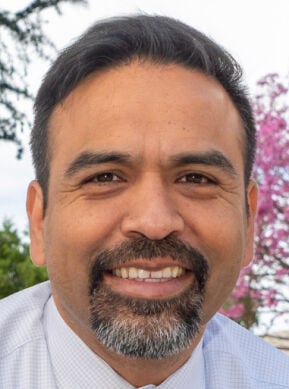Each year, during Teacher Appreciation Week, we’re reminded of the power teachers have to shape lives. We post tributes, deliver flowers, and thank the educators who left a mark on us or our children.
But if we genuinely want to honor teachers, gratitude alone is not enough. We must start by truly understanding what the work entails.
Teaching is not a temporary role. It’s a profession built on experience. Teaching is a calling, yes, but it’s also a craft. It is work that is honed over the years. Work that evolves and deepens through experience, reflection, and collaboration.
This kind of professional commitment deserves more than appreciation—it deserves recognition, investment, and trust.
Teachers are not only content experts. They are relationship-builders, mental health first responders, curriculum designers and thoughtful collaborators. In every school, teachers hold space for students navigating grief, stress, identity or systemic barriers. And they do so while leading learning experiences that are meant to be rigorous, joyful, relevant and responsive—often all at once.
In classrooms across San Mateo County, teachers are showing up for our most vulnerable youth. They support students with disabilities, LGBTQIA+ youth, students from mixed-status immigrant families, and every single child who seeks and deserves to feel seen and valued. For many students from historically marginalized groups, teachers are often the adults creating the first environment where those students feel safe, respected and supported.
They also support students struggling in other ways — under pressure to perform, overwhelmed by anxiety, or unsure how they measure up in a world obsessed with test scores and college admissions. Teachers help those students breathe, stay grounded and feel like they belong.
These responsibilities aren’t part of a job description — they’re part of the reality that seasoned educators know well.
Great teaching is part science and part art. It’s pedagogy, practice and precision. It’s also adaptation, care and connection. A strong teacher builds relationships, sets high expectations, analyzes student data, reflects on what’s working and makes adjustments — all in real-time, all while centering the individual needs of 30 (or more!) different students every single period.
And the best teachers never stop learning. They attend professional development sessions during summer and off-hours, endlessly collaborate with colleagues and create lessons that connect to their students’ lives today while helping prepare them for the jobs of tomorrow.
Recommended for you
Teachers are mentors, advocates and leaders. Some of the most visionary leadership I’ve seen in education comes not from people in corner offices but from educators who are still in the classroom, co-creating change with their students daily.
That’s especially important now, as California faces serious challenges in education: a strained pipeline of new educators, a youth mental health crisis and widening gaps in access to quality instruction and support. These aren’t future problems — they’re happening in classrooms every day.
The teacher shortage isn’t just about how many teachers we have. It’s also about how hard it is to become one, especially for people who reflect the students in our classrooms and can create lessons that connect to their lives. For example, in San Mateo County, approximately 84% of teachers hold a clear teaching credential, meaning they’ve completed all the requirements to become a fully certified teacher. Even for those who want to become a teacher, the path is far from easy.
Since the COVID-19 pandemic, educators have shouldered even more, responding to heightened student needs while also facing growing mental health challenges of their own. Many are carrying the emotional weight of their students’ trauma while managing burnout, increased expectations, and systems that too often fail to support them.
All of this adds up to a lot of pressure on the classroom teachers and other educators who show up every day. If we truly want to appreciate teachers, we have to do more than offer praise — we must invest in their well-being, sustainability and the conditions they need to thrive.
When we lift up teachers, we help students thrive, too.
This Teacher Appreciation Week, let’s do more than just say “thank you.” Let’s fight for policies that reflect our gratitude and the real complexity of teaching — and give educators the resources, respect and autonomy they deserve.
Let’s remember that strong schools are built by people who stay, who serve and who never stop learning. People who see teaching not as a detour but as a deep, enduring commitment to students and to justice.
And if we truly believe in every child’s potential, we must believe in and stand beside the teachers who show up daily to help them realize it.
Héctor Camacho is executive director at the San Mateo County Office of Education. He served for 16 years as a classroom teacher and counselor.































(0) comments
Welcome to the discussion.
Log In
Keep the discussion civilized. Absolutely NO personal attacks or insults directed toward writers, nor others who make comments.
Keep it clean. Please avoid obscene, vulgar, lewd, racist or sexually-oriented language.
Don't threaten. Threats of harming another person will not be tolerated.
Be truthful. Don't knowingly lie about anyone or anything.
Be proactive. Use the 'Report' link on each comment to let us know of abusive posts.
PLEASE TURN OFF YOUR CAPS LOCK.
Anyone violating these rules will be issued a warning. After the warning, comment privileges can be revoked.